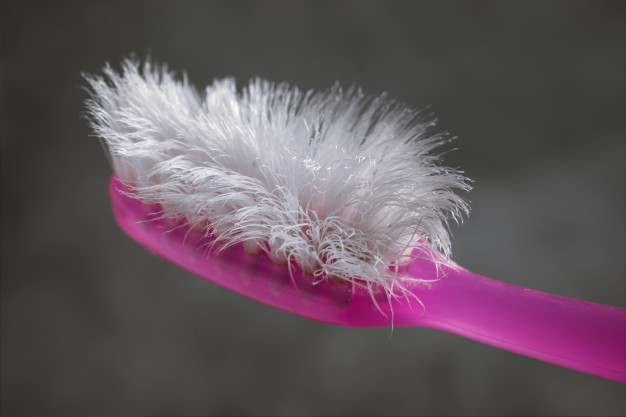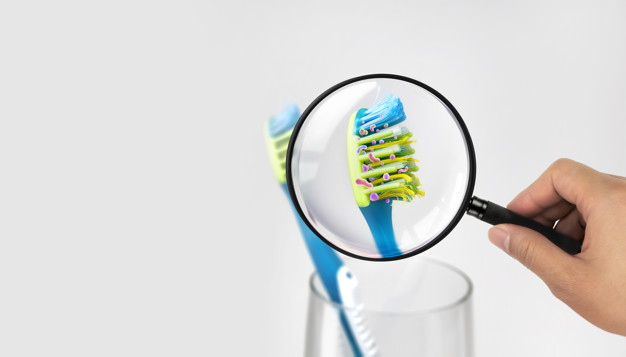

Many people wonder, so what if you don't replace your toothbrush? Some may have never experienced any dental problems and didn't care to replace them that often. But what's in store if you're one of them?
When it comes to cleaning and hygiene we follow some rules; dust two times a week, replace your bed sheets once a fortnight and throw out old makeup. We do care about the cleanliness around us, then why not care about oral cleanliness and hygiene too?
Ideally it is advised to change your toothbrush every 3-4 months according to ADA (American Dental Association) irrespective of whether you use manual or electric toothbrush. If you are using an electric toothbrush you don't have to keep replacing or buying new ones. Electric toothbrushes come with replaceable brush heads which are easy to change and more convenient.

Firstly cleaning your toothbrush can be tedious and time consuming but also important. Not many people know how to keep their toothbrushes clean. Toothbrush bristles get frayed over a period of time, whether you use a hard, medium or a soft bristed toothbrush.
When you use a frayed toothbrush its cleaning efficiency gets compromised. Since the frayed bristles become angulated in a different direction, it now becomes difficult to clean and remove the plaque from each tooth surface and the left over food stuck between your teeth. Naturally the residual plaque causes irritation and inflammation of gums (gingivitis). Untreated gingivitis(gum diseases) progresses to periodontal disease(severe gum diseases) and sequentially tooth loss.

If you continue using your old toothbrush for long time and store in a closed container or a toothbrush case , you are creating breeding ground for bacteria on your brush which may create mouth infections. We lack proper sterilizing methods at home which can get rid of these germs. Also, make sure that every family member stores their toothbrush separately to avoid bacterial transfer from their toothbrushes. We must continue to priorities hygiene and take the appropriate safeguards in the post-pandemic environment. This entails upholding dental hygiene standards and practicing excellent oral hygiene.
Lastly, changing your toothbrush after being sick or it could lead to reinfection. It’s better to take precautions if you have a weak immune system or a compromised medical condition. According to Edita Outericka , DMD, at Dynamic Dental in Mansfield, MA :” Although bacteria and viruses can live up to 3 days on the toothbrush, your body should have built up the antibodies to fend them off and avoid a relapse”
Remember, your toothbrush will perform its job flawlessly only when it is in its best form.
Highlights
Dr. Shardul Taware is a practicing dental surgeon with 2 years of clinical experience. Being artistic and creative, he delivers astounding treatment and shows comforting side of dentistry to his patients. He is specifically interested in prosthetic dentistry. Apart from professional work, he believes in spending quality time with his family and friends and is also a zealous football player.
scanO is an AI ecosystem transforming oral health for patients, dentists, corporates, and insurers worldwide

© 2025 Trismus Healthcare Technologies Pvt Ltd